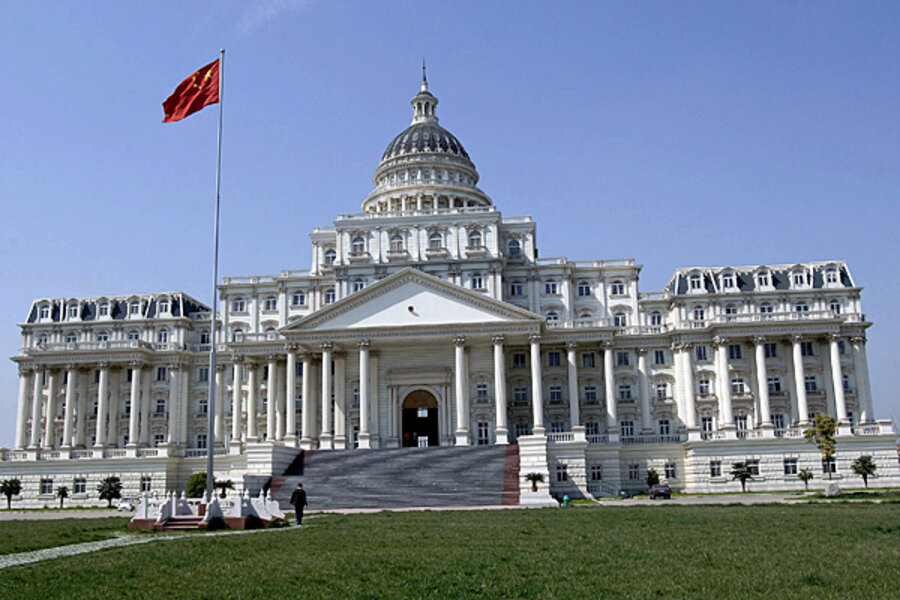China's ruling party tells officials to quit it with the Versailles-like construction
Loading...
| Beijing
Tourists seeking a shortcut to some of the great buildings of the world need look no further than Yingquan.
Yes, Yingquan, a spot on the map in southern China of which almost nobody has ever heard and which has nothing to recommend it to visitors – except its municipal headquarters.
But what a headquarters! A grand flight of steps rises to a wide portico topped by a classical pediment (tick off the Pantheon in Rome.) On either side, above a towering colonnade, grey tiled mansard roofs stretch the length of the building (saves you going to the Palace of Versailles outside Paris.) And rising above it all, a dome that could have been lifted from the US Capitol.
Built in 2006 to the greater glory of the local Communist Party, this ostentatious piece of wedding cakery was the sort of thing the Chinese government had in mind this week when it banned the construction of any government building for the next five years.
The directive, the latest shot in President Xi Jinping’s frugality campaign, said that such buildings – and there are many grandiose palaces in the most unimportant places – have “damaged the party and government spirit and affected the image of the party and government,” according to the official Xinhua news agency.
Chinese citizens have made no secret of their outrage at the waste of public money these mansions represent. Yingquan, for example, is a district of the city of Fuyang in Anhui Province, one of the poorest in China, where the average farmer’s income is less than $100 a month.
But that hasn’t stopped self-aggrandizing local officials from building themselves the most opulent of quarters. The city of Jinan, for example, capital of the eastern province of Shandong, boasts the largest government building in Asia, not much smaller than the Pentagon.
It cost $660 million, according to Xinhua.
The central government officials who issued the directive – an unusual joint notice from the Communist Party Central Committee General Office and the State Council, the government top body – are clearly wise to the tricks of their subordinates in the boondocks.
Not only are all new buildings banned, the instruction said, but neither can officials buy property, nor can they claim renovation or redevelopment as reasons to expand their offices.








